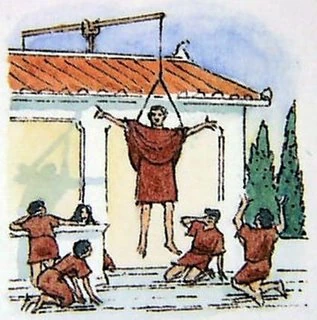Aristotle's Theory
Give a brief but clear explanation of what Aristotle means by the following terms:
- Tragedy
- Hamartia
- Katharsis
- Deus ex machine
TRAGEDY
- Aristotle says that a tragedy is an imitation of an action that is serious and complete, and it possesses magnitude. Tragedy is a drama that shows a story. Tragedies are not narratives. They are stories of every worst case scenario that could have possibly happened. Tragedies are all about actions of the person, not their words. Aristotle also states that a tragedy can have one event that could cause a long chain of events, such as cause and effect.
HAMARTIA
- Hamartia is a tragic mistake but is commonly mistaken for a tragic flaw. Aristotle introduced the term hamartia to describe the error of judgement that ultimately leads to the tragic hero's downfall. Aristotle claims this to be the "law of necessity or probability" because it is very likely for the tragic hero to bring about their own downfall.
KATHARSIS
- Katharsis is another term defined by Aristotle as the purging of the emotions pity and fear, which tend to happen at the end of a tragedy. Katharsis basically means the release of emotions. This is about overcoming the emotions throughout the tragedy, and move on from the past, end the suffering and feeling sorry for yourself.
DEUS EX MACHINE
- Deus ex machine means "god from the machine" or "god rules all". Aristotle was not fond of this idea because he wanted the scene to look realistic and unique. He did not want an outside factor affecting the entire plot of the story because he believed the plot should be self-contained.


Comments
Post a Comment